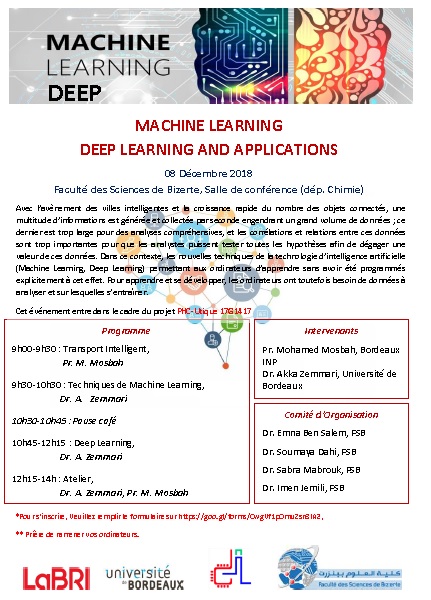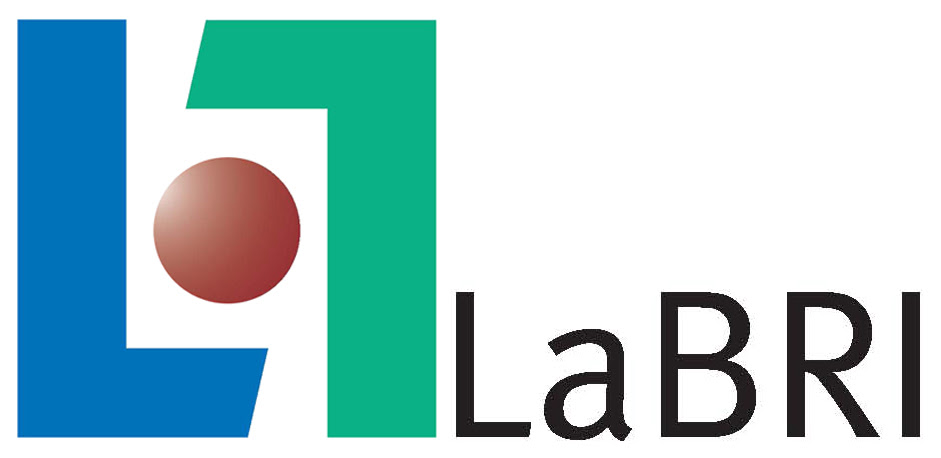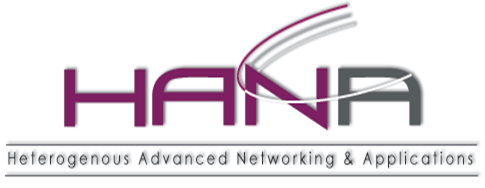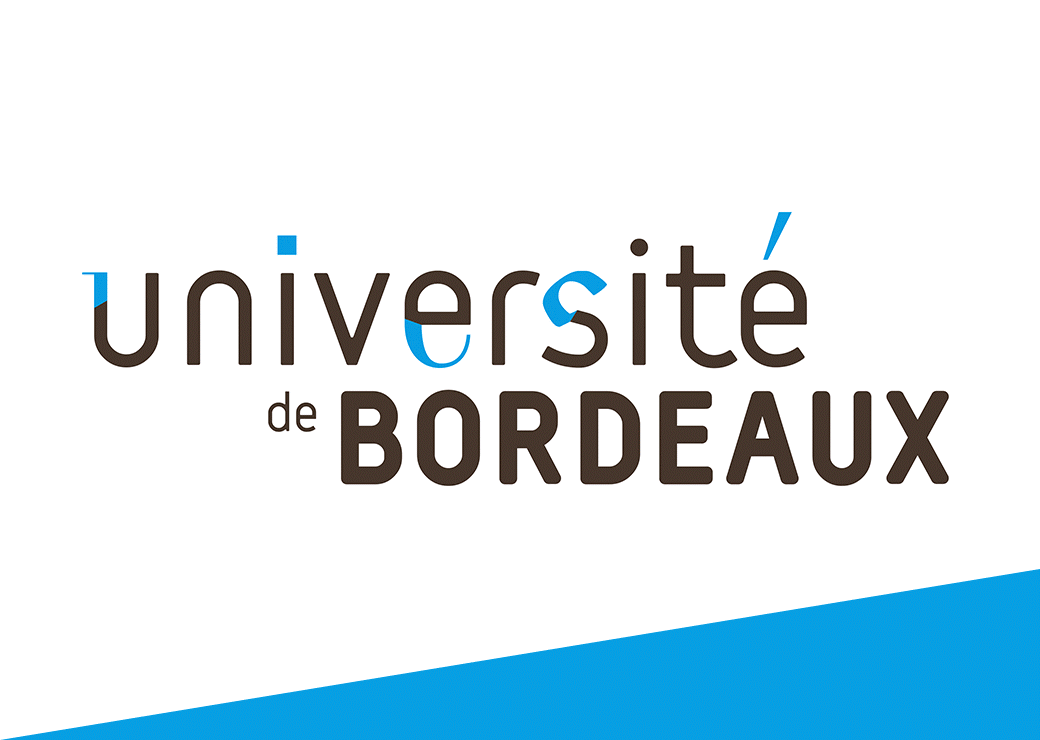Evénements scientifiques 2018
MACHINE LEARNING, DEEP LEARNING AND APPLICATIONS
08 Décembre 2018, Faculté des Sciences de Bizerte, Salle de conférence (dép. Chimie)Programme
9h00-9h30 :
Mohamed Mosbah , "Transport Intelligent"
9h30-10h30 :
Akka Zemmari, "Techniques de Machine Learning"
10h30-10h45 :
Pause café
10h45-12h15 :
Akka Zemmari, "Deep Learning"
12h15-14h :
Akka Zemmari, Mohamed Mosbah, Ateliers
Comité d'organisation
Emna Ben Salem
Soumaya Dahi
Sabra Mabrouk
Imen Jemili

Réunion Annuelle des membres du projet
14 Novembre 2018, LaBRI, Bordeaux Invité : Dominique MerryProgramme
14h00 :
Mohamed Mosbah/ Imen Jemili, Rappel de l'avancment du projet et des axes abordés
14h15 :
Rim Negra, "Reliability and Context-awareness in Wireless Body Area Networks medical applications"
14h55 :
Charazed Ksouri, "Safety Data Dissemination Approach for Internet of Vehicles"
15h30 :
Soumaya Dahi, "La Radio Cognitive appliquée aux Réseaux IoV"
16h15 :
Emna Ben Salem, "Routage avec QoS dans les RCSF"
17h00 :
Sabra Mabrouk , "La segmentation en imagerie médicale"
17h45 :
Discussion
Special Issue "Internet of Vehicles"
A special issue of Sensors (ISSN 1424-8220). This special issue belongs to the section "Internet of Things" Deadline for manuscript submissions: 30 June 2019The first deployments at large scale of connected vehicles are happening throughout the world. Connected through ad-hoc networks, these vehicles are giving birth to an actual “Internet of Vehicles”, which builds the foundation of a next generation of traffic management systems. While day-one applications were relatively straightforward to implement, higher-level applications, like the monitoring of environmental and weather conditions and of the infrastructure and its equipment, depend both on the metrological characteristics of the in-vehicle sensors and on the computational architecture, as well as on the algorithms. However, the ability to implement such applications is a key issue, e.g. to enable the safe deployment of highly-automated vehicles, or to implement automated enforcement strategies in restricted zones.
This Special Issue welcomes contributions dealing with all the technological facets of the Internet of Vehicles, including architecture, communication technologies, advanced applications, sensing and algorithms, but also on deployment issues, such as the development of energy-efficient RSUs.
Special Issue Editors
Dr. Nicolas Hautière, Département Composants et Systèmes, Institut Français des Sciences et Technologies des Transports, de l'Aménagement et des Réseaux, Marne la Vallée, France
Dr. Imen Jemili, Faculty of Sciences of Bizerta, University of Carthage, Tunisia
Pr. Mohamed Mosbah, LaBRI, Bordeaux INP, France
website : https://www.mdpi.com/journal/sensors/special_issues/IoV
The 34th ACM Symposium on Applied Computing
Track on Communication, Computing, and Networking in Internet of Vehicles (CCNIV)
April 8-12, 2019, Limassol, CyprusWith continuously increasing urban population and rapidly expanding cities, traffic congestion, road accidents and environmental pollution, deeply affecting the everyday life and move of people, have become urgent problems to be solved. The conventional Vehicle Ad-hoc Networks, with no concrete implementation, allow vehicles to communicate with each other in order to enable new services, such as traffic management, accident avoidance and resource sharing. However, the recent advances in communications, controls and embedded systems, brought by the Internet of Things era, propel the evolution towards the Internet of Vehicles, a more general concept gaining more interest from both academia and automotive industry during the past few years.
Notwithstanding, the IoV is considered as an important symbol of the Smart City concept and it has a wide application prospect in building future Intelligent Transportation System, numerous challenges still need to be tackled to allow a better exploitation of the Internet of Vehicles potential. The CCNIV track aims to offer a space for researchers/academics to discuss major research issues, to share new findings and to exchange ideas covering a variety of topics associated to Internet of Vehicles and Intelligent Transportation Systems.
General Co Chairs
Imen Jemili, Faculty of Sciences of Bizerta, University of Carthage, Tunisia
Mohamed Mosbah, LaBRI, Bordeaux INP, France
website : http://ccniv.labri.fr/2019/
The 13th International Conference on Risks and Security of Internet and System
16th-18st October 2018, Arcachon, FranceThe International Conference on Risks and Security of Internet and Systems 2018 will be the 13th in a series dedicated to security issues in Internet-related applications, networks and systems. Internet has become essential for the exchange of information between user groups and organizations from different backgrounds and with different needs and objectives. These users are exposed to increasing risks regarding security and privacy, due to the development of more and more sophisticated online attacks, the growth of Cyber Crime, etc. Attackers nowadays do not lack motivation and they are more and more experienced. To make matters worse, for performing attacks have become easily accessible. Moreover, the increasing complexity as well as the immaturity of new technologies such as pervasive, mobile and wireless devices and networks, raise new security challenges..
In this context, new security mechanisms and techniques should be deployed to achieve an assurance level acceptable for critical domains such as energy , transportation, health, defence, banking, critical infrastructures, embedded systems and networks, avionics systems, etc. The CRiSIS conference offers a remarkable forum for computer and network security actors from industry, academia and government to meet, exchange ideas and present recent advances on Internet-related security threats and vulnerabilities, and on the solutions that are needed to counter them.
Committee
General Chairs
Jean Louis Lanet, LHS, INRIA, France
Mohamed Mosbah, LaBRI, Bordeaux INP, France
PC Chairs
Nora Cuppens, IMT Atlantique, France
Akka Zemmari, LaBRI , Univ. Bordeaux, France
Publicity Chair
Mohamed Mosbah, Bordeaux INP, France
Reda Yaich, IRT SystemX, France
Sponsor and Publication Chair
Frédéric Cuppens, IMT Atlantique, France
Axel Legay, INRIA, France
Local Organization
Auriane DANTES, LaBRI, France
Katel Guerin, LaBRI, France
Mohamed Mosbah, LaBRI, France (co-chair)
Sofian Maabout, LaBRI, France
Akka Zemmari, LaBRI, France (co-chair)
Nadia Chaabouni, LaBRI, France
Charazed Ksouri, LaBRI, France
Ghislaine Le Gall, IMT Atlantique, France
Program Committee
Esma Aimer, University of Montreal
Luca Allodi , Eindhoven University of Technology
Jocelyn Aubert, Luxembourg Institute of Science and Technology
Fabrizio Biondi, IRISA/INRIA Rennes
Anis Bkakria, IMT Atlantique
Yu Chen, State University of New York Binghamton
Nora Cuppens-Boulahia,IMT Atlantique, France (Co-chair)
Frédéric Cuppens, IMT Atlantique, France
Imen Jemili, Faculté des Sciences, Bizerte, Tunisia
Jose M. Fernandez, Ecole Polytechnique de Montreal
Manoj Singh Gaur, IIT Jammu, India
Bogdan Groza, Politehnica University of Timisoara
Ruan He, Orange
Reda Yaich, IRT SystemX, France
Christos Kalloniatis, University of the Aegean
Sokratis Katsikas, Center for Cyber and Information Security, NTNU
Nizar Kheir, Thales Group
Igor Kotenko, St. Petersburg Institute for Informatics and Automation of the Russian Academy of Sciences (SPIIRA)
Marc Lacoste, Orange
Kostas Lambrinoudakis, University of Piraeus
Jean-Louis Lanet, LHS, INRIA, France
Mohamed Mosbah, LaBRI, Bordeaux INP, France
Raja Natarajan, TIFR, India
Stephen Neville, University of Victoria
Roberto Di Pietro, Hamad Bin Khalifa University (HBKU)
Kai Rannenberg, Goethe University Frankfurt
Michael Rusinowitch, LORIA INRIA Nancy
Ketil Stoelen, SINTEF
Nadia Tawbi, Université de Laval
Akka Zemmari, LaBRI – Université de Bordeaux (Co-chair)
Lingyu Wang, Concordia University
website : https://crisis2018.labri.fr/










